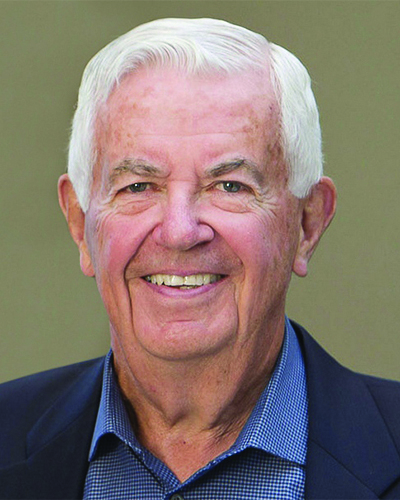
The effects of COVID-19 on how – and where – we work are still unfolding. With so many “non-essential” personnel urged to work from home due to the pandemic, we face a disruption that is forcing employers to reckon with how they operate their businesses now and in the future. Some consider this the end of the office.
As a major commercial real estate operator, I obviously feel much differently. Yet putting aside the business of leasing space, I reflect on my personal experience as an entrepreneur and my relationship with thousands of small businesses of all kinds to offer perspective on why the office is here to stay.
Admittedly, there are some jobs where employees can work at offices within their homes with great results.
There may even be millions of such jobs, where the right people, doing the right assignments, can be as effective or almost as effective as they could be in traditional workplace locations. A distributed workforce model may be preferred by web developers, for example, that can manage projects globally and make progress around the clock.
On the other hand, most businesses have not been built to operate this way. These organizations must now grapple with necessary social distancing. And as convenient as it may be to dial in to a VPN from a home office or dining room table, the “work at home instead” response is far too simplistic.
Google has extended its voluntary work from home option through June 2021. Yet for all the high profile companies like Twitter, Square, and Slack that have announced plans to allow their staff to work from home indefinitely, leaders from other companies such as Scribe Media have resignedly accepted remote work as a mere temporary necessity, eager to return to the collaboration of the office.
Mark Zuckerberg, CEO of Facebook, noted this in May when, in a highly publicized livestream, he declared that the company could have 50% of its staff working remotely in five to 10 years. Zuckerberg acknowledged that working from home is not all positive, with more than half of his team wanting to get back to offices as soon as possible. Interestingly, of the Facebook employees who prefer to work remotely, close to three quarters of them said they might move to another place. Why is that?
Perhaps the most important contributor to the success of the current remote work experiment is the elimination of the daily commute. Pre-pandemic, daily traffic standstills in our region of Boston and Cambridge created enormous stress for much of the workforce, so much so that it threatened the ability to attract and retain talent. Last September, MassBio’s Transportation Survey revealed 60% of respondents would change jobs for a better commute.
This does not mean they do not like going into the office. They just do not want to sit on choked highways and crowded commuter trains to get there.
Having seen some success with the work-from-home model, business leaders may be pondering abandoning the office altogether. It saves money on rent they say, and it avoids a commute. But it also loses something else: Personal connection.
The workplace is the bedrock of company culture. It is where relationships are built, collaboration occurs, and serendipity takes place.
Zuckerberg shared his belief that teams work better when they can physically be together. In fact, his and other company offices are designed to encourage connection and the sharing and building of ideas. This is true at the 370-person commercial real estate firm I founded, where our culture for five decades has been one of collaboration and teamwork. The proximity and accessibility of coworkers is essential for innovation and growth, particularly for the small and mid-sized businesses that are the primary engine of our nation’s economy.
We see these businesses every day from my office, where I have been every workday since the beginning of the pandemic. They are eager to get back to essential services headquarters and establish a sense of normalcy once again.
It is time to get back to work. While it has become a cause celebrate for our most visible national leader to pretend it’s business as normal, as a non-practicing Republican I would certainly not want my views confused with his.
We have an opportunity to re-imagine the future of work and what “normal” looks like.
The solution is a hub-and-spoke model, enabling people to enjoy all the benefits of the workplace, without the headache. Satellite offices, also known as “touchdown” locations, are a key element of the workplace of the future. With the potential to work from anywhere, an office closer to home provides a happy medium for business leaders and employees – and regains the hours previously wasted in gridlock.
William Cummings is founder of Cummings Properties, Woburn, Mass.








